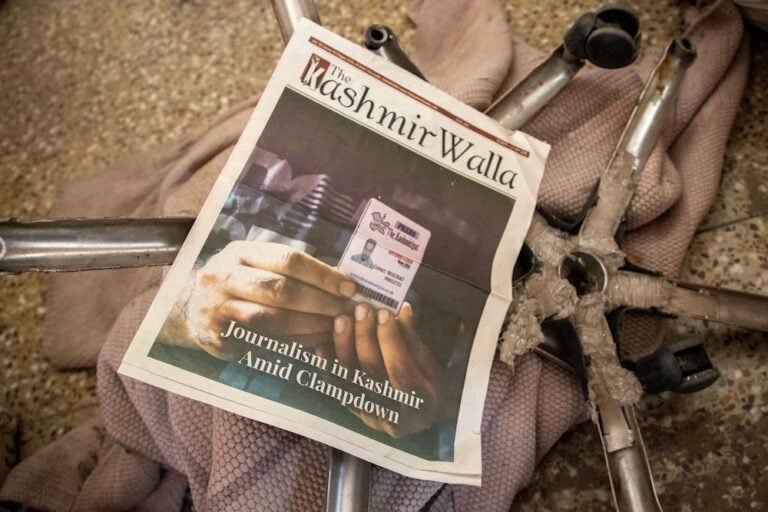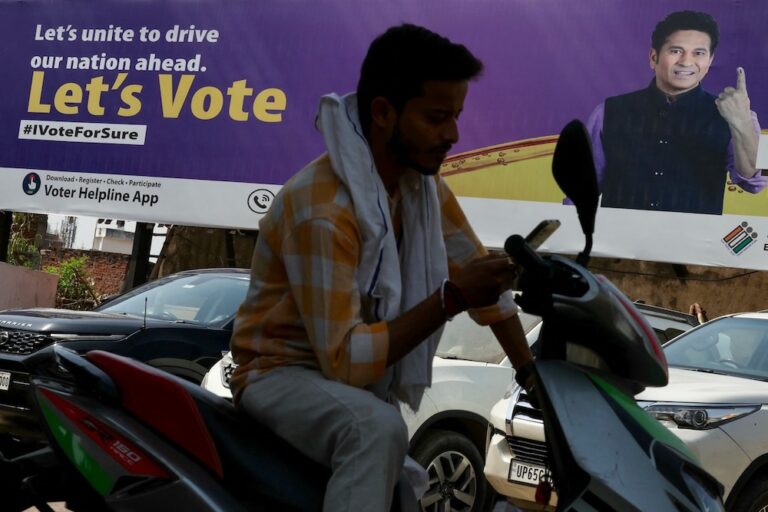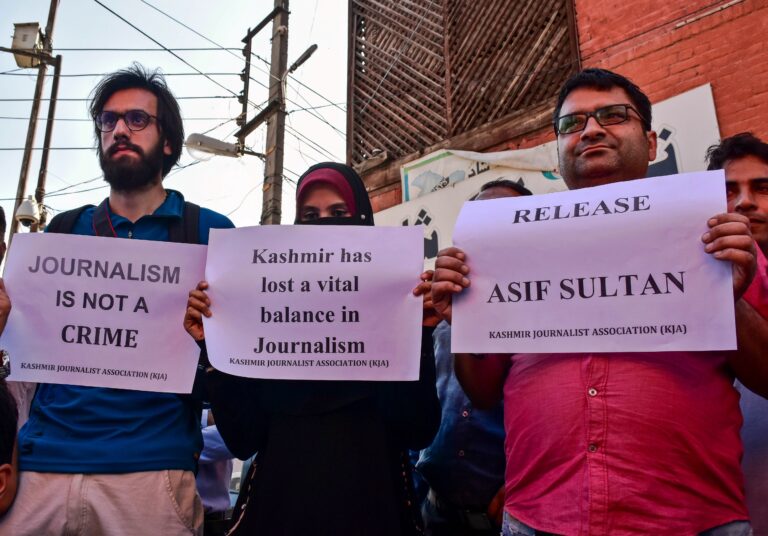(RSF/IFEX) – Reporters Without Borders calls on the Indian authorities to put an immediate stop to the censorship and violence against the media in Kashmir that has been prompted by a wave of protests against Indian rule. At least 13 journalists were beaten by police on 24 August 2008 in Srinagar, local TV stations are […]
(RSF/IFEX) – Reporters Without Borders calls on the Indian authorities to put an immediate stop to the censorship and violence against the media in Kashmir that has been prompted by a wave of protests against Indian rule. At least 13 journalists were beaten by police on 24 August 2008 in Srinagar, local TV stations are being censored and a curfew is making it hard for newspapers to bring out their issues.
“This latest crisis in Indian Kashmir must not be used as a pretext for subjecting the press to more violence and obstruction,” Reporters Without Borders said. “Journalists must have all the guarantees they need, including permanent passes, to be able to work freely despite the curfew. We also call on the police authorities to investigate the violence by certain elements that have led to injuries in the ranks of the press. If no sanctions are adopted, the door will be left open for more abuses. Finally, we call for an end to the censorship of local TV stations, which is a clear violation of the right of Kashmiris to be informed.”
At least 13 journalists were beaten by members of the Central Reserve Police Force in Srinagar as they tried to get to their offices on 24 August despite the curfew introduced earlier in the day. The journalists had passes issued on 11 August but the police members said they were no longer valid.
The injured journalists included Bilal Bhat, the Sahara Samay TV station’s bureau chief in Srinagar, who had several ribs broken, and his cameraman, Muzaffar. Ajaz Ahmad of News X, Jehangir Aziz of ETV’s Urdu service and Amin War of “The Tribune” newspaper were also injured.
The curfew prevented the publication of regional newspapers on 25 August, including the daily “Greater Kashmir”, which posted this message on its website: “Due to unavoidable circumstances, the print edition of ‘Greater Kashmir’ will not be on the stands on 25 August. We regret the inconvenience to our readers. This was the first time in the past decade that ‘GK’ staffers could not reach the office due to restrictions.”
An Indian newspaper’s correspondent in Srinagar told Reporters Without Borders: “I had to go through 20 checkpoints to get to my office and each time I was subjected to the same humiliation and the same questions about my work as a journalist.”
On 24 August, the authorities asked local TV stations not to broadcast reports liable to “excite” the population until further order. TV executives and editors were summoned and told it would be preferable if they suspended news programmes and just broadcast entertainment. The government claimed that reports broadcast by certain stations violated the Cable Television Network (Regulation) Act 1995.
It was on the basis of this law that, on 24 August, a Srinagar judge finally ordered the TV stations to suppress their news programmes and just carry entertainment.
Groups of journalists responded by staging street demonstrations against the violence and censorship. “Let the press work” said the placard brandished by one Srinagar reporter.
Indian troops patrolling the streets of Srinagar and other cities in the region used megaphones to call on the population to stay at home on 25 August. Demonstrations planned by Kashmiri political parties have been banned. Several demonstrators were shot dead for violating the curfew.


